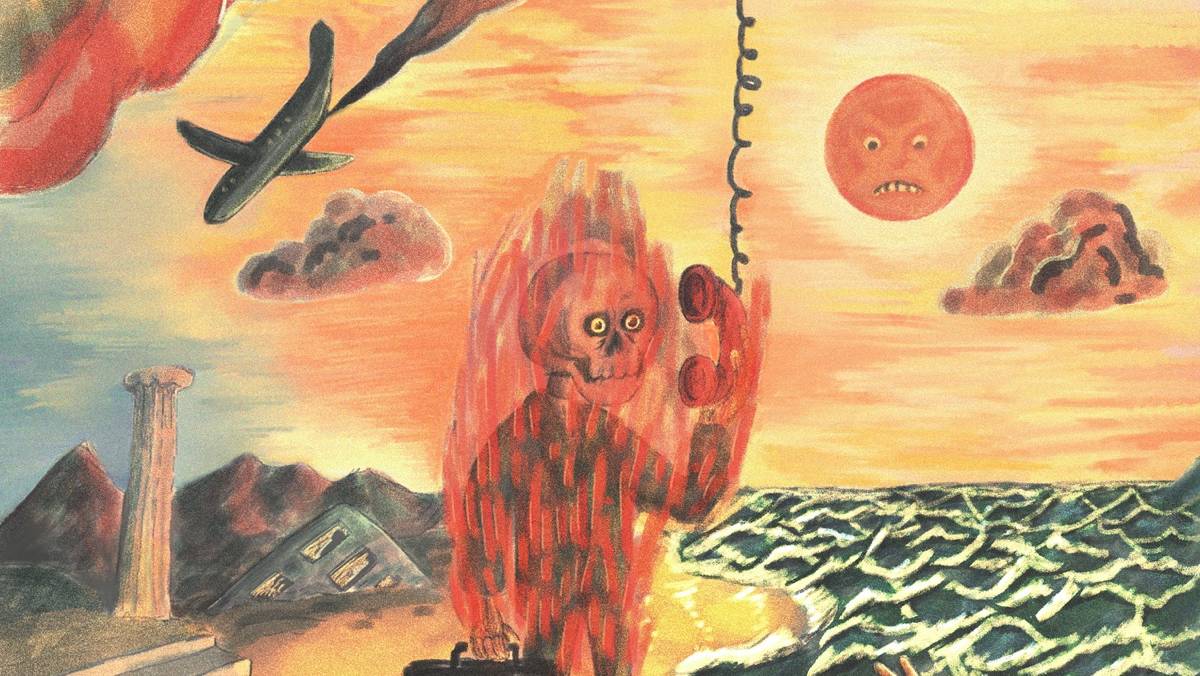3.5 out of 5.0 stars
Leeds-based post-punk rockers Yard Act arrived on the scene to near-universal acclaim between 2021’s “Dark Days” EP and their 2022 debut album, “The Overload.” The latter project generated enough buzz to command a number two debut on the UK Albums Chart. The band’s political messaging and dry wit can come off incredibly heavy-handed at times on these projects, doubly so for lead vocalist James Smith, but this seems to have been counteracted with the March 1 release of “Where’s My Utopia?” through a complete reinvention of sound.
“Where’s My Utopia?” ventures away from the satirical post-punk of their previous projects in favor of a more accessible dance-punk sound with a heavier emphasis on hooks, akin to a band like the Viagra Boys. That’s not to say Smith has lost his edge though — “We Make Hits” is the second track on the album, and it indirectly addresses the sound change with “And there was one singular ambition we had / That most musicians of our ilk aren’t willing to admit / And it was to this mantra we would commit / We make hits.”
That level of self-deprecation persists throughout the entirety of the album, something that could make the album unpleasant for the listener if done poorly. However, that’s where the genre-blending comes in. The ways “Where’s My Utopia?” uses disco, funk and dance influences to create a soundscape that juxtaposes Smith’s sarcastic deadpan delivery better than the more traditional post-punk instrumentals of their debut complimented it. Lead single “Dream Job” is about how the lead singer feels like a twat for portraying himself as “punk” and “anti-capitalist” despite being signed to a major record level. It also has some great twinkling synths and perhaps the best combination of guitar and bass on the album, courtesy of Sam Shipstone and Ryan Needham, respectively.
“Grifter’s Grief” combines Smith’s guilt over having a job that requires him to take constant flights as an “eco-activist” with saxophones, an electric guitar and looping claps reminiscent of 2014 trap music. “When The Laughter Stops” has a feature from Bristol-based indie pop artist Katy J Pearson, whose bright vocals provide some levity from the jaded and aggressively British vocals of Smith, even though she’s singing about how she’s terrified of her career careening to a halt and isn’t able to express those emotions. The song ends with David Thewlis reciting Macbeth’s “Tomorrow, and tomorrow, and tomorrow” speech, so that’s an extra angsty touch.
That’s not to say Yard Act’s experiments succeed perfectly every time though. The album closer “A Vineyard for the North” goes a little too far into experimentation, as the song uses dance-pop percussion that would be more at home on a ’90s dance hit by Armand Van Helden than this project. It’s one of the only times where the post-punk on “The Overload” would have been preferable, but that would go against the magic of an album like this. “Where’s My Utopia?” succeeds precisely because it’s full of tunes that can be played at the pub with the lads while they eat fish and chips, but also appeal to anyone who wants to think a little deeper about life on British soil.
One aspect of Yard Act’s music that has not been mentioned yet is the spoken word tracks. They’re a more divisive aspect of Smith’s sound, with several reviews even in their positivity noting him as the weak link of the band. On this album, though, the borderline rapping is much improved. Sometimes it’s just by keeping these sections brief: the album opener “An Illusion” has a few verses where Smith lays into himself for expecting being in a relatively successful band to alleviate his problems, while also calling out his materialism with “Buying fridge magnets everywhere I went to prove I’ve been / It’s f—king disgusting / Look at this / A cactus in a snapback riding a BMX atop bubble lettering that reads ‘Venice.’” However, these verses are also separated by choruses with harmonizing backing vocalists and strings to keep the sound from becoming too dreary.
There are only two songs that commit fully to spoken word on “Where’s My Utopia?” Smith cites “Blackpool Illuminations” as the most important song on the album, but it’s also probably the least replayable, being a nearly eight-minute interview-style track. Smith discussing his life story and how he no longer needs his utopia is poignant, but it does not necessarily make for good music.
On the other end, “Down By The Stream” goes for more of a goofy rap-rock style and is perhaps the most aggressive song on the album. Smith describes how he used to bully a kid in his teenage years and never really apologized because the kid didn’t feel the need to hold him accountable and they eventually became friends. He apologizes and swears he would never let his son do the same to anyone else, and eventually, the song breaks down into a drone, ending with the line “Jesus Christ, I never meant to hurt anyone.”
While discussing “Down By The Stream,” Smith said, “It’s me dragging myself through the mud to let people know that I’m capable of being a d—khead just like everyone else.” And he’s right. Nobody’s perfect and understanding that can make any message relatable. Leeds is over 3,000 miles from Ithaca, yet this album can still hit so close to home.




















